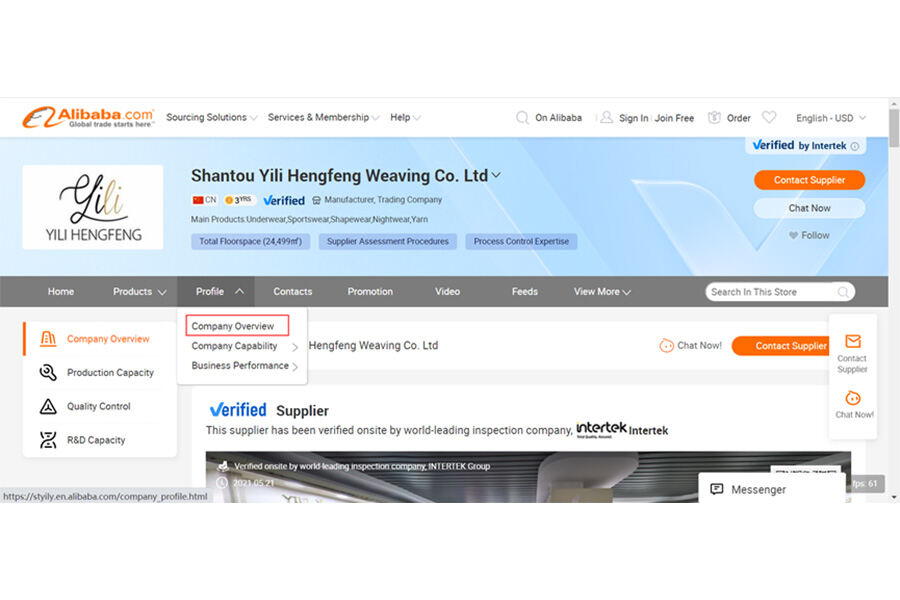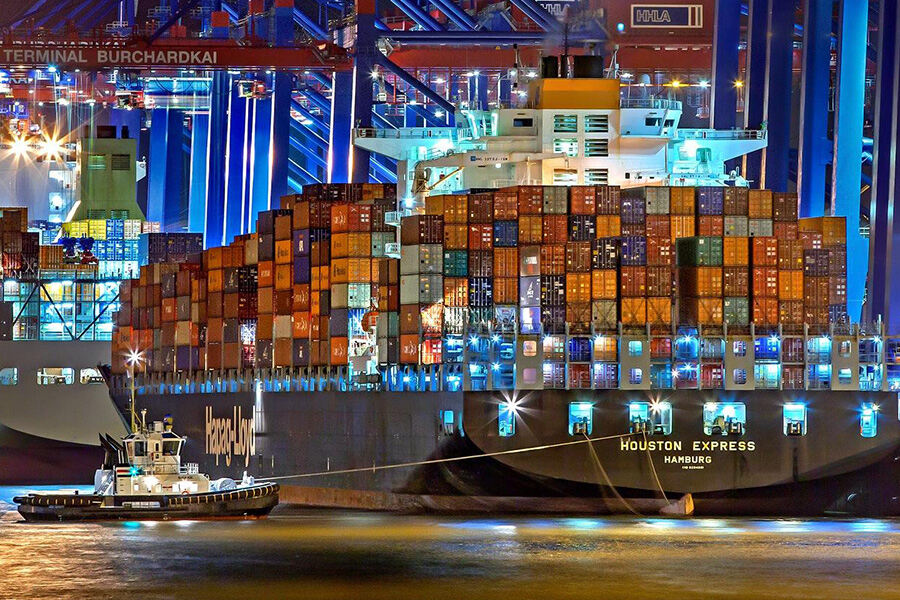Alibaba.com and AliExpress are two of the largest online marketplaces in the world, but they have different features and target audiences. This blog post will explore the similarities and differences between these two eCommerce platforms so that merchants can make an informed decision on which one is right for their business.
Table of Contents
What is Alibaba.com?
What is AliExpress?
Alibaba.com vs. AliExpress: what are the differences?
Alibaba.com vs. AliExpress: which one suits my business?
It all depends on merchants’ needs
What is Alibaba.com?
Alibaba.com was founded in 1999 by Jack Ma as the first subsidiary of the Alibaba Group. The site operates as an online B2B marketplace where businesses can source their products and services from manufacturers and suppliers around the globe.
More than 10 million buyers come to Alibaba.com to find the parts and products they need to produce and sell their final goods, as well as to buy finished goods that they can resell or use in their businesses. These business owners send more than 300,000 daily inquiries to Alibaba.com’s suppliers, who are based all over the world; including China, the US, Thailand, Pakistan, Malaysia, Italy, and more. There are currently more than 200,000 suppliers on Alibaba.com’s platform.
Alibaba.com offers everything wholesalers and retailers need to start and grow their business. This includes 41 categories with over 200 million products, such as Home & Garden, Apparel, Consumer Electronics, Sports & Entertainment, Machinery, Construction & Real Estate, Renewable Energy, and Vehicle Parts & Accessories.
Alibaba.com has evolved into a full-fledged ecosystem that supports the business of online retailers, offline retailers, wholesalers, and even manufacturers. It provides them with several services to expand their reach and brand recognition into new markets around the world.
These services include logistic services such as shipping and customs clearance, which can help business buyers avoid the hassle of handling these tasks themselves. Alibaba.com also offers payment protection through its Trade Assurance program, which protects buyers from fraudulent sellers and entitles them to a refund if the products are not delivered as promised.
What is AliExpress?
AliExpress is a global online B2C marketplace like eBay or Amazon where buyers can purchase a variety of consumer goods from clothing to electronics at retail prices. The website is considered Alibaba Group’s retail division and was launched in 2010.
AliExpress offers a wide selection of products at competitive prices, secure buyer protection, and the chance to purchase in small amounts. The site also makes it simple and affordable for independent vendors to sell their products directly to hundreds of millions of buyers worldwide.
Alibaba.com vs. AliExpress: what are the differences?
At first glance, Alibaba.com and AliExpress might seem similar. They are both eCommerce sites where businesses can buy or sell their wares to consumers, but the two platforms differ in several key ways.
Target customers
The main target audience of Alibaba.com includes businesses rather than individual consumers. This makes Alibaba.com more suited for business owners looking to purchase large quantities of merchandise at wholesale discounted prices.
Although AliExpress primarily targets individual consumers, it also caters to small businesses looking to source small amounts of products to dip their toes into new markets without making a large investment.

Product pricing
Another big difference between Alibaba.com and AliExpress is their pricing model. Alibaba.com is the ideal online marketplace for wholesale sales as it offers business buyers the opportunity to access cheap prices per unit, but it can be difficult to access this privilege without a high minimum order quantity (MOQ).
Meanwhile, AliExpress does not have any minimum order size requirement at all. Buyers can get started right away by searching for products and placing orders as small as one unit. But while this may seem like an advantage at first glance, it is important to remember that buyers are going to pay slightly more per unit here than they would on Alibaba.com.
The difference in price is because many of the suppliers on Alibaba.com are manufacturers, while most of the sellers on AliExpress are trading companies. Trading companies do not manufacture products. Instead, they buy from manufacturers and resell their merchandise at a higher price than the manufacturer would charge for direct sales. Therefore, if a buyer is planning to purchase products in bulk, Alibaba.com is the ideal marketplace as they can ask for a discounted price there directly from the manufacturer.

Product customization
Customization is the key to success for any business. It gives the brand a unique identity and makes it stand out from other competitors.
AliExpress offers ready-made products, meaning buyers cannot ask for modifications or customization. This is a significant difference from Alibaba.com, where suppliers often offer customizations in the form of personalized engravings and other adjustments to products.
It is worth noting that ready-to-ship products (RTS) are also available on Alibaba.com. Such pre-made products are usually shipped within 14 days, making them ideal for businesses who want to quickly test a new market. RTS products are usually available in a standard design, but some suppliers offer buyers the opportunity to add their company’s logo or other designs to the product packaging.
Import certificates
Many products cannot be shipped internationally due to various certifications required. For example, food products or medication items require specific certifications from public authorities such as FDA in the USA.
On Alibaba.com, business buyers can check if the supplier has all the necessary legal certifications such as import licenses or ISO certifications before placing an order. Buyers with large-scale orders can even request suppliers on Alibaba.com to apply for a specific certification such as EU Cosmetics Regulation. On AliExpress, on the other hand, this is simply not possible; buyers source their products from the seller with no way of contacting them directly.
Verification reports of suppliers
One of Alibaba.com’s distinguishing features is the Verified Supplier program. It is intended to help buyers make better purchasing decisions by providing them with information on the vendors’ capabilities. A verified supplier will be marked with a “Verified” icon on their store or product page. It means that the seller has gone through a review process by a third party and has been approved by Alibaba.com.
The verification report, which can be found on the profile page of verified suppliers, contains detailed information about a company’s activities, products, and processes. Most importantly, it gives the buyer confidence that the supplier is trustworthy and has a high-quality standard by verifying their business license, factory location, production capability, and quality control procedures.

Shipping time and cost
As long as buyers are willing to wait a few weeks for their products to arrive, shipping is typically free on AliExpress using couriers. Alternately, suppliers on Alibaba.com tend to offer expedited shipping options through ocean carriers for bulk orders. While this option does keep costs down, it often takes months for the goods to arrive.
Having said that, this does not mean that there are not any quick delivery options on Alibaba.com. The Logistics Service is an easy way to ship goods around the world while keeping the costs low. By choosing from multiple cost-effective shipping methods, including by sea, air, or land, buyers can receive their goods to over 220 countries and regions with virtually worldwide coverage.
And with the On-time Delivery Guarantee that covers 32 routes in 169 countries and regions and the transparent easy-to-use tracking system, business buyers can monitor their shipments at every step of the shipping journey until they reach their final destination.

Request for quote
The ability for buyers to submit RFQs before placing an order is another feature that sets Alibaba.com apart from AliExpress. An RFQ (Request for Quote) is basically like an inquiry request from a potential buyer asking for information about the pricing of the product features. This feature allows businesses to get a transparent breakdown of what they are paying for and to make sure the supplier will meet their specific requirements.
Alibaba.com vs. AliExpress: which one suits my business?
As explained in the previous section, there are a lot of differences between Alibaba.com and AliExpress. The following section will help businesses determine which platform best suits their needs as merchants.
Dropshippers
Dropshipping is a great way to start a new business with no upfront costs or inventory headache, but which platform is well suited for this business model? In the past, the answer was clear: AliExpress. But now, Alibaba.com has launched its dropshipping center, which is poised to become a serious contender in the eCommerce space.
Alibaba.com’s dropshipping center offers several features and cost-saving benefits, including:
- Millions of products with a wide range of categories such as clothing, electronics, home appliances, etc.
- Top-rated and Verified Suppliers that sell without a minimum order requirement, so dropshippers will not have to worry about receiving counterfeit products or dealing with fraudsters.
- Automation and integration features that help streamline the process of ordering from multiple suppliers at once.
Wholesalers and retailers
For wholesalers looking to purchase their products in bulk quantities, Alibaba.com is the obvious choice. The ability to negotiate directly with vendors and manufacturers on Alibaba.com allows businesses to build strong supplier relationships that can help get better deals in the future.
For retail merchants, it is recommended to use AliExpress as a test platform for their products. They can use it to gauge interest in their product ideas, get feedback from customers, and get a feel for how much they can sell before committing to sourcing large inventory from Alibaba.com.
Brands
Branding is the process of creating an image for the company that will resonate with consumers and make them feel like they should buy from it. Alibaba.com is geared towards businesses that want to create such brand identities, while AliExpress is best suited for small merchants that want to sell their products on their store with minimal customization.
Many suppliers on Alibaba.com offer product customization, allowing businesses to customize their products with the company’s logo or other design elements. They can select from a wide range of colors, materials, and dimensions to design their desired products from the ground up.
It all depends on merchants’ needs
After exploring the main differences between these two giant eCommerce platforms, it is evident now that there is no one-size-fits-all solution for every merchant as the choice depends on each business’s needs and circumstances.
For example, while AliExpress is an excellent option for individual consumers and small businesses who want to test a product idea before entering a new market, Alibaba.com provides an ideal marketplace for wholesalers, retailers, brands, and even dropshippers! And for those looking to get started with Alibaba.com as online buyers, here is a guide that contains all the information they need to successfully source products on Alibaba.com!




